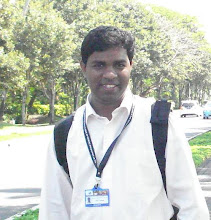Today is World AIDS Day’s and it is celebrated on the theme “ Human Rights and Universal Access” which is very apt and timely. In 2006, at the UN High-level Meeting on AIDS, the world committed itself to reach universal access to HIV prevention, treatment, care and support for all people in need by 2010. Come 2010 and there will be evaluation of MDGs – Millennuim Development Goals - encouraging high level review of what has, and has not, been accomplished in the aim to achieve access for all to essential care by 2010.
The theme will help us to draw attention to key populations affected by HIV and be part of the current momentum around the issue of human rights. Further, the language and framework of human rights makes new dialogue possible, and pulls together many issues including the right to information, right to treatment, non- discrimination as well as the right to health.
Although progress has been made on many fronts (i.e. accelerating access to HIV treatment and care, mobilizing increasing amounts of funding, resources and expertise to respond to the epidemic), current situation in our country, suggest that we are lagging far behind. It’s high time that we reflect and ask ourselves whether we are heading towards universal access targets in 2010, especially in the area of preventing new infections among populations at higher risk.
Focussing on theme and relating it with situation in our area, there is a need that the stakeholders working on the issue, needs greater support and cooperation. Now more than ever, greater attention to human rights is essential to an effective response to HIV, including attaining universal access to prevention, treatment, care and support. People from all sections of the society, including religious leaders from all faiths, should extend support to NGOs in addressing the controversial issues at the heart of the epidemic, including gender inequality, violence against women, harmful male gender norms, age disparate sex and underage sex, sex out of marriage, sexual violence in relationships and marriage, sex work, same sex behaviour, drug use, stigma and discrimination, marginalization and criminalization of populations at risk. Currently, there is tendency to oppose all the moves made in relation to the HIV issue, without getting to know the ground situation.
Leaders from political spectrum should direct sufficient resources, programming and political commitment to the populations most affected by HIV infection and its impacts: women, young people, orphans, vulnerable children and children living with HIV, as well as criminalized and marginalized populations that often face major barriers to accessing HIV prevention, treatment, care and support: people who use drugs, sex workers, men who have sex with men and prisoners
Lastly, it is essential that HIV is viewed as more than a health issue. We should endorse the idea that “linkages to other areas, such as gender, human rights, education, are crucial”. In the new environment, it is critical that HIV not be subsumed under health.

.jpg)




